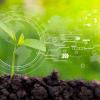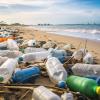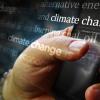
IIASA is part of a project funded under the Belmont Forum’s joint Collaborative Research Action on Pathways to Sustainability to develop and apply an indicator system for measuring sustainability in the agricultural sector that will close existing knowledge gaps and facilitate decision making for more sustainable agricultural production.
Pathways towards sustainable agriculture and the feasibility of measuring it remain elusive, in part because it encompasses both environmental and socioeconomic components that are still insufficiently integrated. In addition, there are complex trade-offs and synergies among the various Sustainable Development Goals (SDGs) that relate to agriculture. To further complicate matters, these interactions also vary across regions.
The Sustainable Agriculture Matrix (SAM) Consortium project is exploring new ways of making agricultural production more sustainable, bringing together a consortium of researchers from various disciplines spanning the natural, economic, and social sciences, as well as stakeholders such as farmers, NGOs, industry, and policymakers from Austria, Brazil, Kenya, Morocco, South Africa, Turkey, and the United States.
Christian Folberth, a researcher in the Agriculture, Forestry, and Ecosystem Services Research Group of the IIASA Biodiversity and Natural Resources Program, leads the Austrian team, which also includes Franz Sinabell from the Austrian Institute of Economic Research (WIFO) and Thomas Schinko, leader of the Equity and Justice Research Group of the IIASA Population and Just Societies Program. The international consortium is led by Xin Zhang from the University of Maryland, USA.
“The overarching aim of the project is threefold: first, we will aim to provide a consistent and transparent measurement of countries’ performance in terms of sustainable agricultural production. Second, the consortium will investigate the socioeconomic and ecological drivers necessary for countries to achieve sustainability, and lastly, the project will quantify and visualize the impacts of current agricultural production on the sustainability of the sector to co-design an improved set of indicators and analyses tailored towards stakeholders’ requirements for applications of such an indicator system in practice,” Folberth explains.
Building on the conceptual framework of a sustainable agriculture matrix developed some 30 years ago, an international research team has developed a database and analytical framework over the past four years to translate the illustrative components into measurable indicators. The SAM reports indicators by country and year, making it possible to track a country’s progress over time and to compare different dimensions of sustainability across countries. However, the SAM does not only rely on available data reported on the national level but also synthesizes data in the literature and in other public domains on various spatial and temporal scales.
In each of the participating countries, research teams and stakeholders will co-evaluate and further co-develop the existing prototype of the SAM. As the Austrian country partner, IIASA will perform indicator analyses and evaluate these jointly with stakeholders in a series of workshops. The project will serve as a platform to facilitate and encourage conversations among stakeholders involved in the agricultural sector and to forge positive changes towards sustainability while avoiding unintended consequences.
News

28 June 2024
Drowning in waste: pollution hotspots in aquatic environments

27 June 2024
What can social media tell us about public views on climate change?

21 June 2024

